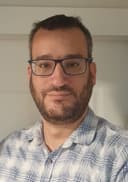Israel-Gaza War, Academia, BDS
"We deal in research, and they deal in advocacy": The New BDS Against Israeli Academia and Academics
While efforts to boycott and excommunicate Israeli scholars and scholarship due to politics have been going on for decades, the current war has made things far worse.


Israeli academia and academics have increased scientific and academic collaborations across the world significantly over the last few decades, despite efforts to boycott them over the conflict with the Palestinians. The October 7 War might end all that.
BDS, the movement aimed at boycotting, divesting, and sanctioning Israel and anything related to Israel in the name of the Palestinian struggle, has been around since at least 2001, around the start of the Second Intifada. Since then, it has become a slogan for a whole host of efforts to attack Israelis and Jews, especially those on western university campuses.
The Israeli newspaper The Marker reports that things have now become much worse on the campus front. According to many Israeli scholars and academics, including current and former presidents of universities, what was once vague or hard to prove is now blatant and practically above board, a trickle turned into a flood.
As the article explains, cooperation and collaboration between institutions and scholars is the life blood of academia. It's needed for research, to apply for grant money, to get published and or receive letters of recommendation for promotion. It is also vital for being hired.
In the last two months since the October 7 massacre, the academics interviewed in The Marker report multiple cases of Israelis not even being considered for positions simply due to their name, of not being invited to conferences, and of non-Jewish scholars suddenly and inexplicably cancelling their scheduled lectures in Israel.
Israel has thousands of doctoral and post-doctoral students studying abroad, especially in the United States but also in Europe - about 80% of joint scientific papers come from these countries and Israel in 2018-2020, according to the Israel Academy of Sciences. Their work there and the knowledge they acquire is important not only for their own careers but also the development of the country's scientific knowledge and economic growth as a whole.
Now all that is threatened.
Those interviewed said that Israeli universities need to prepare for the worst and be ready to provide positions for the many Israelis who now find themselves professionally stranded, but the likelihood of finding the budget and room for everyone is slim. The interviewees also condemned what they considered "weak" responses by American university presidents.
Perhaps the starkest statement on the matter comes from Haifa University President Professor Ron Robin, who described the situation in the humanities and social sciences but who says that this is also becoming true even of fields like medicine:
"A gap has opened up between how we study the humanities in Israel and what's being done in the US. We deal in research and meantime they deal in advocacy. This gap is unbridgeable, not even with hasbarah. It's a real gap and I have no solution."
Robin said that personally, "I felt antisemitism on all the campuses I visited and also outside the campuses. The dominant paradigm in the US is a discourse which has no shades, there are only oppressors and oppressed, and it affects us twofold. The bodies leading the protests against Jews on campuses aren't seeking justice, but rather the demographic change of elite universities. Their goal is to make Jews go somewhere else to hide or hide their identity. Jews today feel different inside American universities."
Join our newsletter to receive updates on new articles and exclusive content.
We respect your privacy and will never share your information.
Stay Connected With Us
Follow our social channels for breaking news, exclusive content, and real-time updates.
WhatsApp Updates
Join our news group
Follow on X (Twitter)
@JFeedIsraelNews
Follow on Instagram
@jfeednews
Never miss a story - follow us on your preferred platform!